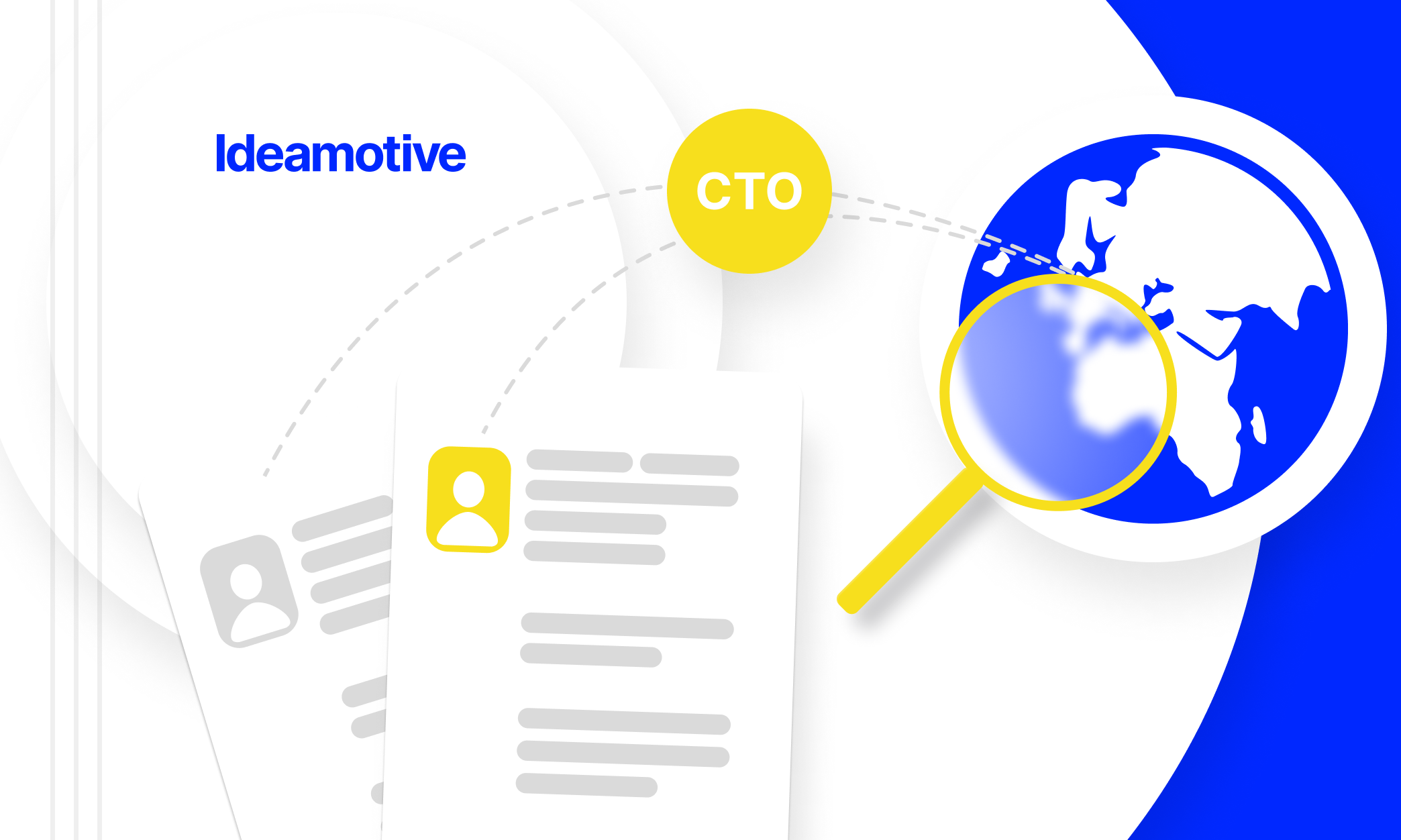You a winning idea. You’ve got the drive and business acumen to see it through. The only missing piece you need to fill in is a technical co-founder.
as they play an essential role in making your venture attractive to investors, building the product, and managing a technical team. However, many aspiring founders feel overwhelmed with how to find the right person.
Many founders who don’t have a technical background find it challenging to evaluate if someone has the right skillsets. A second challenge is finding someone they can align with and have a good cultural fit. Finally, many aspiring founders find it hard to find someone committed to riding the ups and downs of a startup, especially when financial instability is involved.
In this guide, we’ll walk you through a 4-step process to help you navigate these challenges and find technical co-founder your business.
Step 1: Define the skills & qualities you need
The first step is clarifying the skillsets, industry experience, and other qualities you need. Let’s dive into how you can determine each one.
Define the skills you need
That’s why you first want to define the technical skills you’re looking for. Here are some tips that can help you, even if you don’t have a technical background.
- Go to job boards and look for companies that are within your niche or that could potentially be your future competitor. Look for any recruitment ads for technical positions and compile a list of what they want.
Scope around for the most common skills listed or in demand, such as “familiarity with Git/GitHub”, “managing a growing tech stack”, and “C++ programming language”. Look for any specialties within your niche that would be more beneficial to you.
- Go to LinkedIn and look at the qualifications and skillsets of other technical co-founders. Is there anything they all have in common that stands out? Add this to the list that you’ve compiled from the first part.
- You should now have quite a comprehensive list of technical skills. Ask around your trusted friends or colleagues in the technology industry if you don’t understand how a particular skill set translates to real-world results. Get advice on anything else you missed that you should consider.
- Finally, divide the list of skills you compiled into “Non-negotiable” and “Nice to have” categories. This helps you prioritize your needs and identify deal breakers. Remember that finding someone who checks all the boxes is unlikely, so be flexible and focus on the most critical skills.
Define their ideal industry experience
you want to look for experience with transferable skills that can give your company an edge.
Let’s say, for example, that you want to create an educational app for children. You could partner with somebody with the essential skills to lead the development of the app you envision. This would be sufficient to launch your product.
However, if you find somebody with the same skillset who has experience as a technical consultant with educational bodies, they could bring far more to the table. Their experience and network of contacts would give your startup an edge in getting partnerships that accelerate your reach and insights to stand out from the competition.
Look for leadership and teamwork skills
A technical co-founder is not a lone island. He or she needs skills to.
It's best to look for someone who has experience in leadership roles. This doesn’t necessarily mean they must have held a leadership position in a technology company. You should also look beyond the technical resume and see if they show any leadership initiative in other areas of their life.
Perhaps they actively organize the school play at their children’s school every year. Or maybe they manage a team of volunteers at a community non-profit.
Whatever the experience, it’s important to look for team organizational skills and the ability to delegate and follow up on tasks, mentor team members, and keep everyone on track toward common goals.
Step 2:
You’ve defined the skills, industry experience, and leadership qualities you need. What’s the next step? Don’t limit yourself to only posting a recruitment post on a job board. Here are other ways to search for potential technical co-founders.
Networking events
Networking events are a great place to connect with industry professionals, meet your potential technical co-founders, and showcase your startup idea. There are two types of networking events you can target:
- Industry events for your niche
The first type of event you can target is events in your niche. Returning to the example of creating an educational app for children, this could mean attending early childhood education conferences, symposiums, summits or fairs.
These events will allow you to connect with people with relevant industry experience and whose passions align with yours.
- Events for technical professionals
Events targeted towards technical professionals can provide opportunities to network with technical professionals and get a more in-depth insight into the specific technical skills they have.
Some examples of events for technical professionals include:
- In-person conferences that bring together experts and professionals from the technology industry to discuss new trends, innovations, and ideas.
- Hackathons, even online ones, provide a more intimate setting for you to experience the real-world capabilities of a technical professional. At hackathons, technical professionals collaborate on projects to solve problems in a short time.
Even if you are not qualified to join a hackathon, you can look for hackathons relevant to your idea or industry. See if you can contact the organizer to find out who participated in these hackathons. It’s also worth connecting with the organizer as a potential candidate who has displayed leadership skills in managing the hackathon.
Social events (and social media)
a more indirect way to. However, they provide the advantage of credibility and trust when you have mutual friends or acquaintances who can vouch for the person’s professional experience and personal integrity.
Social events tend to be more casual. So you don’t want to be gate-crashing every wedding and turning it into your job interview event. The key is to ensure you’re prepared for the chance that you meet.
Before every social event, make sure you:
- Bring business cards you can give out or have a QR code that someone can scan to get your contact details.
- Have prepared an elevator pitch of your startup idea and have practised to deliver it well.
- Understand the essential skillsets you’re looking for — enough to be able to ask the right questions, so you’ll know if this is someone you want to connect with again to take discussions further.
Don’t underestimate the power of social media too. A powerful tip from founders of technology companies is to document your startup journey on social media. Not only could this attract the right technical co-founder to your social media doorstep, it could also attract potential investors, employees, and even customers.
Accelerators
One of the challenges many founders may face is finding someone who meets all their industry experience criteria, but he or she is not interested in leaving their current job.
Since accelerators are events targeted at entrepreneurs, you can be sure to meet people interested in being part of startups or new businesses. These events allow you to meet with aligned passions and ideas for potential collaboration.
The shared learning curriculum and accelerator mentorship also act as a good testing ground to see how well you and the potential technical co-founder communicate and collaborate.
Referrals
Finally, if the contacts you make at networking events, social events, or accelerators don’t measure up to be your potential, it doesn’t mean it's the end of the road. Ask them (and your current network) for referrals.
Referrals are beneficial as they allow you to connect with individuals who have already been vouched for by someone you trust or a credible industry professional, giving you the added benefit of assurance that the person is reliable.
This means that you are more likely to find a potential technical co-founder with a track record of success who is reliable and has the skills and experience you seek. What's more, referrals from trusted sources can create a sense of trust and demonstrate credibility, which helps foster relationships from the get-go.
Step 3: The interview process
You’ve met and are ready to take things to the next level — the interview process. Whether you choose to do this casually over a meal or a bit more formally at your office, you must have the following aspects covered.
Prepare the right interview questions
Preparing your interview questions in advance doesn’t mean there isn’t room for spontaneous questions. It simply ensures that you won’t miss asking any critical questions that could identify deal-breakers.
When preparing your interview questions, make sure you include questions that will:
- Give you an understanding of their skills, skill level, industry experience, and real-world results.
- Test their leadership and teamwork skills.
- Explore the working style you expect. For example, is it a deal-breaker for you if someone is unwilling to relocate and mostly wants to work remotely?
Assess their technical skills
In addition to questions that assess their technical skills, you might also want to consider including these other methods of assessment:
- If you already have a product demo, you could ask them to give you a technical review of your codebase. Their review can help you evaluate their ability to analyse, identify technical issues, and solve them.
- If you don’t have a demo of our product and need them to build something from scratch, you can ask for work samples of products they’ve built before or ask for references to evaluate the quality of their work, coding style, and ability to work the different programming languages and tools.
- Another way to evaluate their skills is to work on a small project together. This could be a project in an accelerator program or a pro bono project for a good cause. Other than being able to evaluate their skills, it will provide you with a testing ground to determine how well you work together, collaborate, and communicate to deliver results.
Evaluating culture fit
Finally, you need to ask questions that evaluate how well they will fit into your current office culture or how well they align with the dream office culture you want to create.
To do this, you first need to know your company culture or the vision you wish to achieve. Based on this, you should adjust your questions to see how aligned are with your:
- Working styles
- Values and vision
- Communication style
- Belief systems
- Habits and routines
- Acceptable behavior and interactions
- Qualities to work in the role required of them (for example, ability to work under pressure if fast iterations are required)
Step 4: Equity split and other considerations
You’ve concluded the interview process with the potential technical co-founder, and you’re all happy to partner. Congratulations! Now comes the nitty-gritty stage of being transparent on how the business will be split before you sign the dotted line.
Discussing equity split
When discussing equity split, you need to take into consideration these key factors:
- The investment, if any, each co-founder is bringing to the table
- How much time can each co-founder commit to the business
- Discussing vesting schedules that peg equity earned to ongoing contributions or reaching certain milestone goals
- Future growth and exit plans
Roles and responsibilities
Be sure to also discuss each partner's role and responsibilities, including:
- Financial roles, including how you will handle budget allocations
- Non-financial roles, including how you will handle employee hires, operations, and so on.
- Team management roles and who will lead each department
- Deliverables each partner is responsible for to reach your milestone goals.
Legal agreements and contracts
Finally, ensure you have everything written down and signed in a legally binding contract. It is so important to have this as it can help avoid any possible misunderstandings or disputes.
It is best to consult a lawyer to create a contract that meets all legal requirements and fairly protects the interests of all parties. Each party is responsible for ensuring they understand all terms and conditions clearly.
Conclusion
A technical co-founder is essential for your venture's success — the right person can catapult you into the success you dream of; the wrong person could lead you into a path of struggle.
Do not despair if you still haven’t found your dream. Follow the steps outlined here with perseverance and patience, and you will open up new paths that can lead you to for your business.
How Ideamotive can help you find your technical co-founder
Ideamotive is a trusted marketplace where companies worldwide can find vetted tech. Our IT staff augmentation services for startups and scaleups match talent with their industry, technology, and company culture for all levels, from executives through to technical co-founders.





.png)



